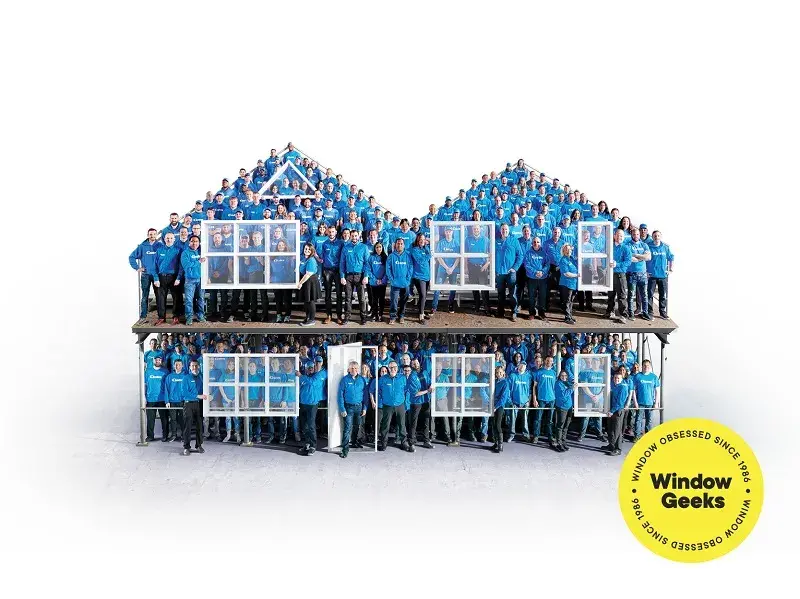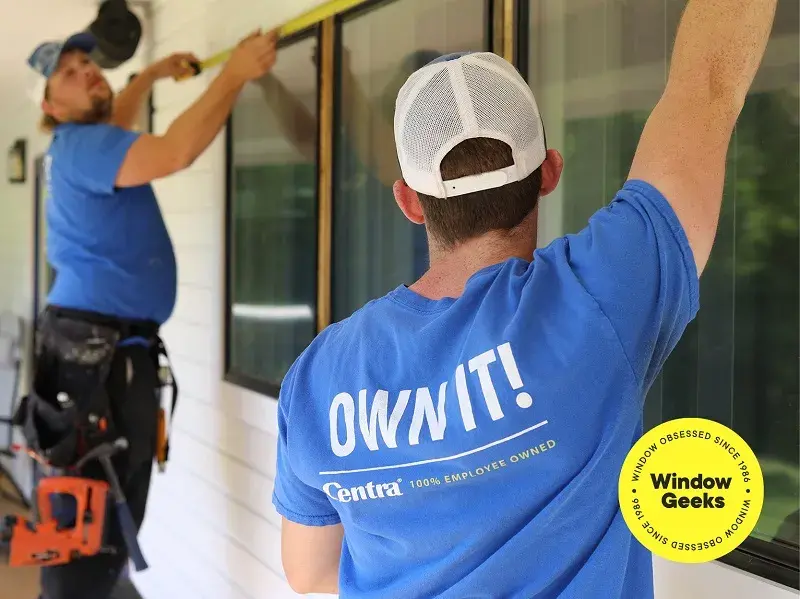Categories
Trending
Comfort Energy Savings In The News
Discover Centra’s Supreme Collection Windows: The Best Option for Comfort and Style
Budgeting Energy Savings
Are Energy-Efficient Windows Worth the Investment?
Comfort Energy Savings
Which Windows Are Most Energy Efficient? An Expert Guide to Save on Energy & Costs
Recommended
Comfort Window Geeks
The Importance Of Window GlassEnergy Savings Window Geeks
Double-Pane or Triple-Pane Windows: Which Are Better?What is a Solar Heat Gain Coefficient – and How Do You Choose the Right One?
Could you be wasting money by choosing the wrong Solar Heat Gain Coefficient (SHGC) for your home?
We asked our followers on social media: What’s the ideal solar heat gain coefficient? The results were unanimous – everyone said 0.30 or higher. But here's the thing: that's not always the best choice.
Understanding what SHGC means – and how it applies to your unique climate and building design – is key to saving energy, improving comfort, and getting the most value from your window project.
What Is a Solar Heat Gain Coefficient (SHGC)?
Solar Heat Gain Coefficient (SHGC) measures how much solar radiation (aka heat from sunlight) is admitted through a window, skylight, or door – either directly or indirectly after being absorbed and re-radiated.
- A higher SHGC (e.g., 0.30 or above) means more solar heat passes through.
- A lower SHGC (e.g., 0.20 or below) means less heat enters your home.
In practical terms:
- SHGC of 0.30 = 30% of the sun’s heat enters your home.
- The lower the SHGC, the greater the shading ability of the glass.
Why SHGC Matters for Energy Efficiency
The SHGC you choose impacts both comfort and energy usage. Selecting the wrong rating can lead to:
- Overheating in warm climates.
- Missed opportunities for passive heating in cold climates.
- Unnecessary window upgrade costs.
Here’s why this matters: If your windows are in direct sun, especially on the south- or west-facing side of your home, a low SHGC (like 0.20) helps block excess heat. But if your window is shaded by trees, architectural overhangs, or nearby buildings, a lower SHGC might provide no added benefit – just a higher price tag.
Choosing the Right SHGC for Your Climate
Let’s break it down by climate:
Warmer Climates
In hot regions – like Interior British Columbia, which has seen record-breaking summer temperatures in recent years – a low SHGC is essential. It reduces unwanted solar gain and helps keep indoor spaces cooler without overloading your AC.
Colder Climates
In places with cold, sunny winters, such as Alberta, a higher SHGC is often preferable. It allows more solar heat in, reducing heating needs. However, for areas like coastal BC, where winters are mostly cloudy, the benefit of a high SHGC may be limited.
Other Factors to Consider (It’s Not Just About Climate)
Climate is important, but it's only one part of the equation. Here are a few more things to keep in mind when choosing the right SHGC:
Orientation & Window Placement
South-facing windows receive the most sun exposure. East and west windows get strong sun at different times of day. Choose SHGC accordingly.
Structural Shading
Overhangs, brise-soleils, pergolas, and even nearby trees can block sun. These features may reduce the need for a low SHGC window, saving you money.
Seasonal Conditions
Deciduous trees lose their leaves in winter, allowing more sun through. That’s when a high SHGC window can help warm your space naturally.
An Analogy: Do You Need Sunglasses Indoors?
Think of it this way: Buying an expensive low-SHGC window for a shaded or north-facing wall is like buying designer sunglasses you only wear indoors. Sure, they’re high-performance – but are they necessary? Not really. And no one will see them anyway.
You can get better value by strategically using high- or low-SHGC products depending on where and how they’ll actually make a difference.
What’s the Optimal SHGC?
It depends. To get the best performance and return on investment, consider these key factors:
- Climate: Hot or cold? Sunny or cloudy?
- Window orientation: Which direction do your windows face?
- Shading: Are there overhangs, trees, or other buildings nearby?
- Seasonal changes: Do you want to benefit from solar gain in winter?
- Design alternatives: Could smart shading do the job instead?
Final Thoughts
Choosing the right solar heat gain coefficient isn’t about picking the “best” number – it’s about choosing the right number for your home.
Taking the time to evaluate orientation, shading, and climate will not only improve your comfort year-round, it can also lead to smarter budgeting, lower energy bills, and a more efficient building envelope.
Need help selecting the right SHGC for your project? Our team is happy to walk you through your options based on your design and region.
Western Canada’s Top Choice for Windows & Doors
Have an upcoming window and door project? Reach out to the experts at Centra Windows & Install Pros for a free consultation! If you have any questions regarding this topic or anything else to do with windows, contact a local Centra Employee Owner at 1-888-534-3333 or drop us an email at info@centra.ca. Follow us on Facebook and Instagram to stay up to date, and test your window knowledge on LinkedIn.



